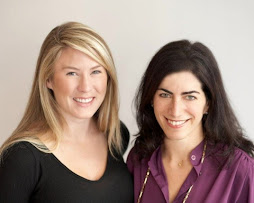
I am happily halfway through reading The Happiness Project by Gretchen Rubin, who we are thrilled is coming to speak at IGC in February!
The Happiness Project is an account of the year that Gretchen spent test driving different theories of happiness in order to be more appreciative of the great life she already had. I love the premise of the book and can relate to the structured, pragmatic, and goal-oriented way that she approaches her own happiness.
I also love that she created this quest during a time of happiness rather than, like so many others, after a personal disaster or loss. Perhaps it is because I have had so many chaotic and challenging times in my past, but I love the romance of the everyday so it really works for me that this book focuses on happiness of the everyday variety, not the ‘what is my purpose on earth’ kind.
I consider myself a very happy and content person, and if given the choice I would change anything significant in my life. Although, like Gretchen, I agree it would be great to be more appreciative on a daily basis. There are little moments where I find myself disproportionately frustrated or annoyed, or that I find I don’t remember really wonderful things as frequently as I should, or that I continue habits that are unhappy and unhelpful (i.e. checking the Blackberry at night).
So I have really been taking Gretchen’s wisdom and experiences to heart. Last night I was reading about the month that Gretchen dedicated to focusing on having more fun. It was interesting because some of what Gretchen resolved to do was expand her horizons and try new things, yet at the same time she was also trying to be true to one of the resolutions that she developed at the start of the year: Be Gretchen. Obviously sometimes these things were in tension. Trying new things can be difficult when you are also being mindful and honest about what you do and don’t like to do.
Anyway, a good part of the chapter focused on owning who you are and living in accordance with it. Many of Gretchen’s blog readers had written into her blog sharing their challenges coming to terms with who they really are, what they really like, and what they really don’t like. Sometimes it takes a while to realize that no, you really don’t like staying up late or reading certain things, or doing certain jobs. No matter how hard you’ve tried to convince yourself.
What I ended up thinking was something different though. During my growing up journey I certainly had some (sometimes surprising) realizations about who “Adelaide” really was. But long after acknowledging and accepting certain facts, I have found that the resistance is a lot less internal and a lot more external.
I have the experience of telling people that I am not that social, don’t enjoy cocktail parties, and can be quite awkward in conversation, only to have them tell me not to be silly and that of course I’m not that way. Maybe they are trying to make me feel better and are secretly thinking ‘you’re not kidding!’ or maybe they just don’t or don’t want to see me that way. Or I will tell people that I hate to exercise and they will say “but you are an active person”. I don’t want to argue but by most definitions, probably not.
I’m not sure why I get push back on some things or whether other people experience it as well. Sometimes this resistance from others gives me pause and makes me wonder whether my self-perception is off. But I’m now thinking about it differently. Other people don’t have to believe me, but I have to believe me. I realize that it not just about self-confidence and honesty, it is an important part of my happiness. Sharing a preference or limitation with others protects that happiness. Saying no to things you don’t like and making informed choices also protects that happiness.
One of the many big takeways from The Happiness Project for me:
Less of what you don’t like. More of what you do. Be Adelaide.
posted by Adelaide Lancaster
image courtesy of Kimberly Creagan












